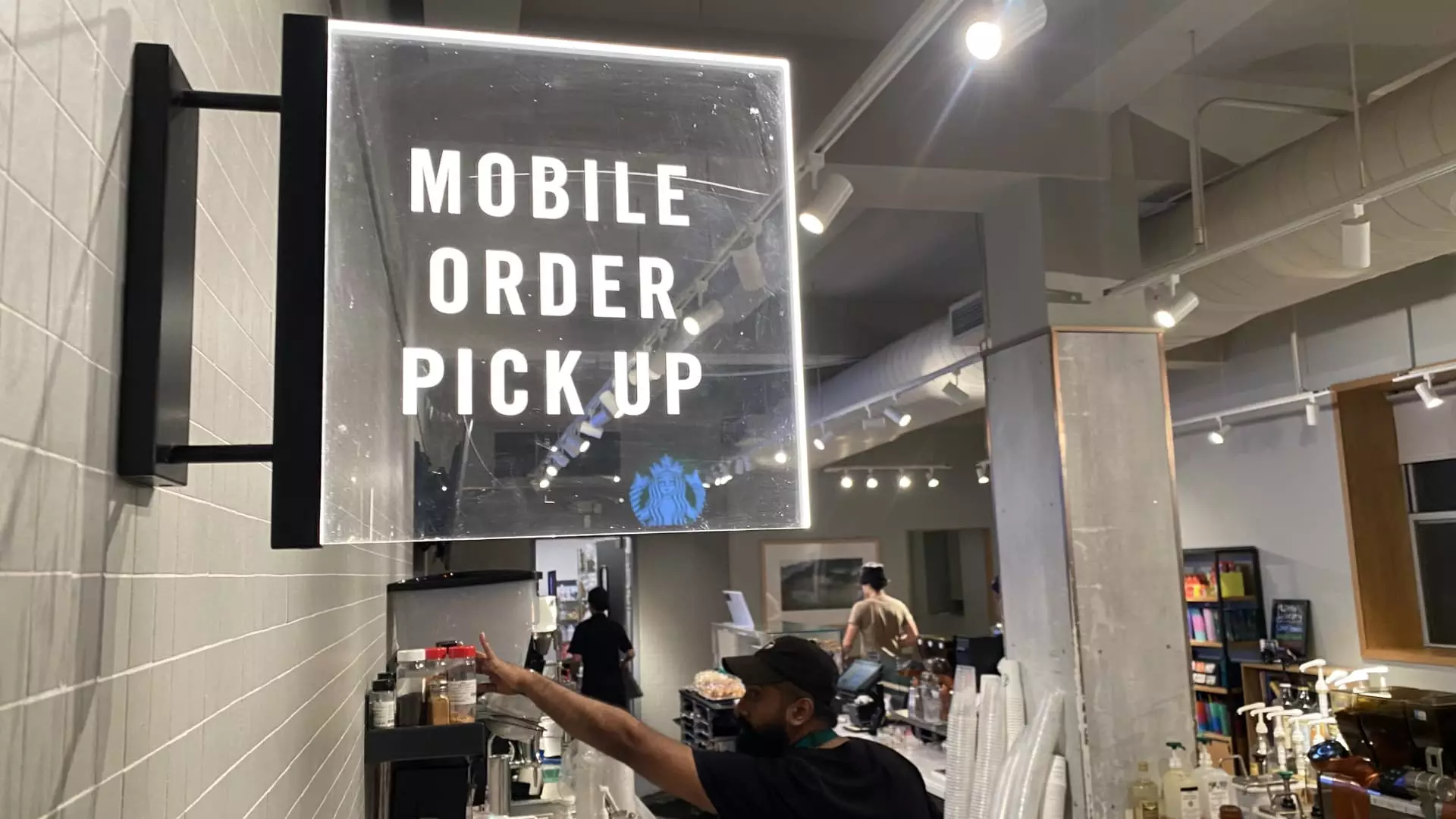Starbucks, the struggling coffee giant, has been facing operational issues that have been affecting its sales in recent quarters. One of the main culprits for its decline in same-store sales is the increasing reliance on mobile orders. These orders account for approximately one-third of Starbucks’ total sales, presenting additional challenges for baristas due to their complexity. Add-ons like cold foam or syrups, which are more profitable for Starbucks, require more time to prepare, leading to frustration among both employees and customers. It is evident from the situation at Starbucks cafes that the current operational processes are not efficient in handling the influx of mobile orders, resulting in long wait times and crowded counters.
The transition in leadership from Howard Schultz to Kevin Johnson did not bring about significant changes in anticipating the shift towards mobile ordering and its impact on Starbucks’ operations. Schultz, who stepped down as CEO in 2017 and returned as interim CEO in 2022, acknowledged the company’s failure to invest in technological advancements to address the challenges posed by the mobile app. The lack of foresight in adapting to changing consumer behavior and digital trends has led to bottlenecks in Starbucks’ operations, adversely affecting the customer experience and employee morale.
As Brian Niccol prepares to take over as the new CEO of Starbucks, he faces the daunting task of addressing the operational issues that have plagued the company. One of the key areas that Niccol must focus on is making mobile orders more efficient to reduce crowding in stores and improve service times. Starbucks needs to implement measures to streamline its operations, such as investing in new equipment, automation, and training for employees. By enhancing the speed and accuracy of order fulfillment, Starbucks can enhance the overall customer experience and regain its position as a preferred destination for coffee aficionados.
The pressure on Starbucks baristas to handle digital orders, coupled with the challenges of a fast-paced work environment, has contributed to burnout among employees. The introduction of mobile ordering promotions further exacerbated the situation, prompting some workers to unionize in 2021. Starbucks Workers United, representing employees at numerous U.S. stores, have called for changes in the mobile ordering system to alleviate the burden on baristas. By addressing the concerns of its workforce and ensuring a healthy work environment, Starbucks can mitigate turnover rates and improve employee retention.
Contrary to Starbucks, Chipotle has successfully navigated the shift towards digital ordering and online sales. Brian Niccol’s leadership at Chipotle has been instrumental in driving digital sales through strategic promotions, rewards programs, and innovations like dedicated prep lines for digital orders and drive-thru lanes for online pickups. Chipotle’s proactive approach to addressing operational challenges and embracing technology has enabled the company to thrive in the digital era. Starbucks can draw inspiration from Chipotle’s success and implement similar strategies to enhance its operational efficiency and customer satisfaction.
Starbucks must prioritize operational improvements under Brian Niccol’s leadership to address the challenges posed by mobile orders and enhance the overall customer experience. By investing in technology, training, and process improvements, Starbucks can streamline its operations, reduce wait times, and alleviate the strain on baristas. The company’s ability to adapt to changing consumer trends and deliver convenient, efficient service will be crucial in revitalizing its brand and regaining market share in the highly competitive coffee industry. It is imperative for Starbucks to learn from past mistakes, leverage the lessons from successful companies like Chipotle, and implement strategies that align with the evolving needs of its customers and workforce.

